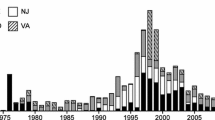Abstract
Current practices in natural resources consumption are unsustainable and may eventually lead to ecosystem extinction. Sustainable ecosystem management is necessary to ensure that human and ecological needs of the present are satisfied without compromising the ability of future generations to meet their own. This paper uses a simple mathematical model of an integrated ecological and economic system representing our planet’s sectors, including, but not limited to, natural, industrial, housing, and energy production sectors. The aim of the project is to maximize the sustainability of this system, using Fisher information as a statistical measure as a measure of sustainability, and derive socio-economic policies using optimal control techniques. By controlling six policy parameters, we were able to sustain all the ecological mass compartments (which were not sustainable in the consumption increase scenario of the future), thus significantly increasing the lifespan of all the species in the model.








Similar content being viewed by others
References
Benavides P, Diwekar U, Cabezas H (2014) Controllability of complex networks for sustainable system dynamics. J Complex Netw (under review)
Brock W, Xepapadeas A (2010) Pattern formation, spatial externalities and regulation in coupled economic—ecological systems. J Environ Econ Manag 59:149–164. doi:10.1016/j.jeem.2009.07.003
Brundtland GH (1987) Our Common Future: Report of the World Commission on Environment and Development. Oxford University Press. http://www.un-documents.net/our-common- future.pdf. Accessed 24 Feb 2014
Cabezas H, Fath BD (2002) Towards a theory of sustainable systems. Fluid Phase Equilib 194:3–14. doi:10.1016/S0378-3812(01)00677-X
Chakraborty K, Das S, Kar TK (2011) Optimal control of effort of a stage structured prey- predator Fishery model with harvesting. Nonlinear Anal Real World Appl 12:3452–3467. doi:10.1016/j.nonrwa.2011.06.007
Chang DS, Yeh LT, Liu W (2014) Incorporating the carbon footprint to measure industry context and energy consumption effect on environmental performance of business operations. Clean Technol Environ Policy. doi:10.1007/s10098-014-0785-9
Diwekar U (2003) Introduction to applied optimization. Norwell, MA
Frieden BR (1998) Physics from Fisher information: a unification. Cambridge, UK
Haberl H, Plutzar C, Erb KH, Gaube V, Pollheimer M, Schulz NB (2005) Human appropriation of net primary production as determinant of avifauna diversity in Austria. Agric Ecosyst Environ 100:119–131. doi:10.1016/j.agee.2005.03.009
Kotecha P, Diwekar U, Cabezas H (2012) Model-based approach to study the impact of biofuels on the sustainability of an ecological system. Clean Technol Environ Policy 15:21–33. doi:10.1007/s10098-012-0491-4
Krausmann F, Erba KH, Gingricha S, Haberla H, Bondeaub A, Gaubea V, Lauka C, Plutzara C, Searchingerd TD (2012) Global human appropriation of net primary production doubled in the 20th century. Proc Natl Acad Sci 110:10324–10329. doi:10.1073/pnas.1211349110
Llibre J, Xiao D (2014) Global dynamics of a lotka—volterra model with two predators competing for one prey. SIAM J Appl Math 74:434–453. doi:10.1137/130923907
Mäler K, Xepapadeas A, Zeeuw AD (2003) The economics of shallow lakes. Environ Recour Econ 26:603–624. doi:10.1023/B:EARE.000000735
Meadows DH, Meadows DL, Randers J (1992) Beyond the limits: confronting global collapse, confronting global collapse, envisioning a sustainable future. Chelsea Green, Post Mills
Menshutkin VV, Rukhovets LA, Filatov NN (2014) Ecosystem modeling of freshwater lakes (review): 2. models of freshwater lake’s ecosystem. Water Resour 41:32–45. doi:10.1134/S0097807814010084
Rodríguez-Labajos B, Martínez-Alier J (2013) The economics of ecosystems and biodiversity: recent instances for debate. Conserv Soc 11:326–342. doi:10.4103/0972-4923.125744
Shastri Y, Diwekar U (2006) Sustainable ecosystem management using optimal control theory: part 1 (deterministic systems). J Theor Biol 24:506–521. doi:10.1016/j.jtbi.2005.12.014
Shastri Y, Diwekar U, Cabezas H, Williamson J (2008) Is sustainability achievable? Exploring the limits of sustainability with model systems. Environ Sci Technol 42:6710–6716. doi:10.1021/es800661x
Sohngen B, Mendelsohn R (2003) An optimal control model of forest carbon sequestration. Am J Agric Econ 85:448–457. doi:10.1111/1467-8276.00133
Waage E (2008) U.S. energy policy response to international food prices: the costs and effects of corn ethanol production. Politics Policy 36:792–804. doi:10.1111/j.1747-1346.2008.00135.x
Whitmore HW, Pawlowski CW, Cabezas H (2006) Integration of an Economy under Imperfect Competition with a Twelve-Cell Ecological Model. United States Environmental Protection Agency. http://nepis.epa.gov/Adobe/PDF/P100778R.pdf. Accessed 13 April 2013
Acknowledgments
This work was made possible and supported by VRI-CUSTOM (Vishwamitra Research Institute - Center for Uncertain Systems: Tools for Optimization & Management).
Author information
Authors and Affiliations
Corresponding author
Electronic supplementary material
Below is the link to the electronic supplementary material.
Rights and permissions
About this article
Cite this article
Doshi, R., Diwekar, U., Benavides, P.T. et al. Maximizing sustainability of ecosystem model through socio-economic policies derived from multivariable optimal control theory. Clean Techn Environ Policy 17, 1573–1583 (2015). https://doi.org/10.1007/s10098-014-0889-2
Received:
Accepted:
Published:
Issue Date:
DOI: https://doi.org/10.1007/s10098-014-0889-2




